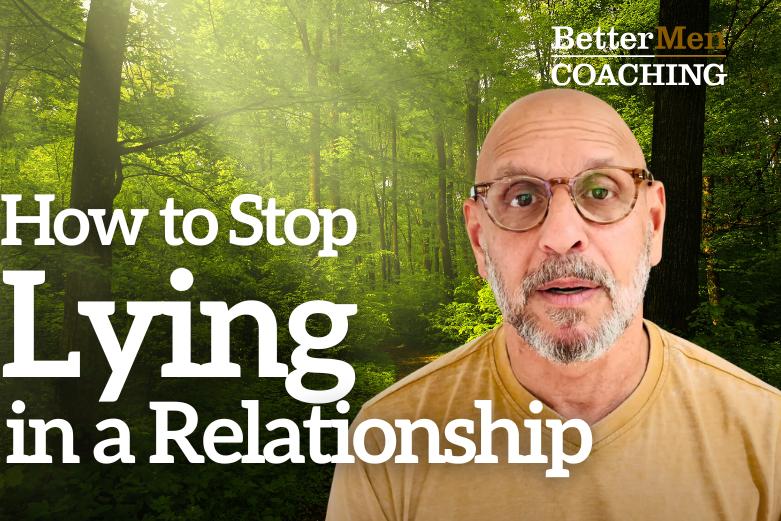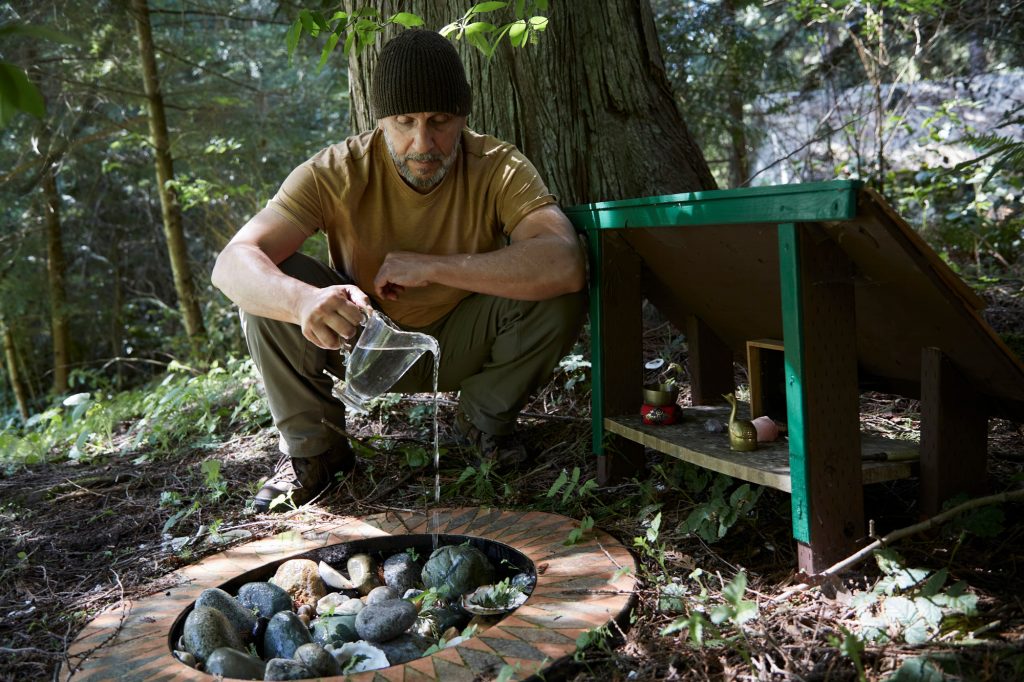
Trust is the foundation for every relationship. But lying, whether to avoid confrontation or spare a partner’s feelings, can sometimes seep into the cracks, and a deterioration of trust and emotional intimacy is often next. If you’ve been struggling with dishonesty in your relationship, you are not alone. Identifying and challenging this behavior is essential to overcoming dishonesty and developing a more secure, healthy bond with someone.
Lying, whether minor or grave, is like putting acid on trust in a relationship; it warps out trust and causes irreversible damage. The first step to stop lying is to understand the underlying reasons for lying. This can be out of fear, insecurity, or in an attempt to sidestep confrontation. After identifying the root cause, open and honest communication needs to take precedence. Communicate openly and honestly with your partner, establishing a safe space where both partners feel heard and valued.
If you’re struggling with how to stop lying in a relationship, you’re taking an important first step toward healing and growth. In this guide, we will both explore the why and how of lying, learn about its impact on your relationship, and provide concrete steps you can take to foster honesty.
Understanding the Reasons Behind Lying
Building trust in relationships and understanding these motivations is crucial to addressing the issue. One of the most common motives is actually fear of conflict, as people lie to avoid an argument or pressure. Some people lie for similar reasons, hoping to spare their partner’s feelings by keeping the truth from him or her.
Others still might lie because of insecurity: fear of rejection or judgment. Additionally, habitual lying can stem from past experiences where dishonesty seemed like a necessary coping mechanism. Identifying the underlying reasons behind the lies is the first step in breaking the cycle and fostering open, authentic communication within the relationship.
Honesty doesn’t always come easy. There are underlying reasons why people lie, particularly in close relationships. Understanding these motivations is critical to addressing the root cause.
Relationship Honesty Tips for Identifying Lying Motivations:
- Fear of Conflict: Some people lie to keep the peace, afraid that the truth might spark arguments or disagreements.
- Desire to Protect Feelings: Others may twist the truth to avoid hurting their partner’s emotions, believing they’re shielding them from discomfort.
- Low Self-Esteem: People who struggle with self-worth might lie to appear more desirable or impressive to their partner.
- Avoiding Consequences: Lies are sometimes used to escape accountability for poor decisions or mistakes.
- Reflect on why dishonesty occurs in your relationship, by understanding the “why,” you can begin to address and overcome it.
Pro Tip: Journaling your thoughts about why you lie in specific instances can help you spot patterns and triggers. This step is a gateway to self-awareness and growth.
Recognizing the Impact of Lies
Even small lies can hurt a relationship deep down. As a matter of principle, lying destroys trust, which is the foundation of any healthy relationship. Once the lies are unveiled, the deceived partner tends to be hurt, confused, and insecure. Persistent dishonesty, over time, can chip away at emotional intimacy, leaving the two parties on either side of an emotional wall, incapable of true understanding and communication.
For the guilty and ashamed, it gets worse; It can choke your insides, eroding both body and soul. Identifying the damage created by dishonesty is a crucial first step for both partners to start healing and repairing a relationship built upon honesty.
Even “little” lies can snowball; they can erode the trust and intimacy you’ve developed with your partner.
Pro Tip: Ask yourself how your lies may have made your partner feel. Empathy is key to understanding the gravity of dishonesty and taking effective steps toward change.
Relationship Honesty Tips for Identifying Lying Motivations:
- Erodes Trust
Trust is a fragile yet essential component of a relationship. Lies, no matter the intention, can lead to feelings of betrayal and doubts about future truthfulness. - Builds Emotional Distance
Dishonesty creates walls. Partners may feel disconnected, questioning the authenticity of their bond. - Creates Complications
One lie often leads to another, and the tangled web of dishonesty can make problems harder to resolve.
Example: A partner who lies about overspending might later lie to cover up the resulting financial strain. Over time, this pattern complicates the relationship further.
Being truthful even when uncomfortable lays the groundwork for solving issues as a team.
Open Communication
Honest communication is the bridge that reconnects partners after dishonesty has taken its toll. But how can you start conversations about feelings, fears, or past lies without escalating tensions?
Tips for Honest Conversations:
Choose the Right Time
Schedule discussions when both of you are calm and free from distractions. Avoid bringing up sensitive topics during arguments or busy moments.
Use “I” Statements
Expressing emotions using “I” statements (e.g., “I felt hurt when I found out you didn’t tell me about…”) reduces defensiveness and focuses on your feelings, not blame.
Encourage Openness
Create a nonjudgmental environment where both partners feel safe sharing thoughts and truths.
Pro Tip: Start small if you’re both new to these conversations. Begin by sharing something minor but truthful to rebuild the habit of openness, one step at a time.
Building Trust Gradually
Rebuilding trust after dishonesty requires consistency, patience, and commitment. It’s not a one-time fix. It’s a process requiring both partners’ time and effort.
Strategies for Rebuilding Trust:
- Be Transparent: Share details about your day, actions, and feelings without your partner asking. Transparency demonstrates reliability.
- Follow Through: If you say you’ll do something, do it. Following through on promises reinforces your credibility over time.
- Celebrate Small Wins: Acknowledge progress, like having honest conversations or sharing important truths.
Remember, trust isn’t earned overnight. Stay consistent, and your partner will come to see your commitment to honesty.
Self-Reflection and Personal Growth
Stopping the habit of lying requires inward reflection. Beyond your partner, it’s important to evaluate how dishonesty might be holding you back as an individual.
Steps for Personal Growth:
- Practice Self-Awareness
Ask yourself hard questions, such as, “Why did I feel the need to lie?” or “What am I afraid of sharing?” - Try Journaling
Writing down your thoughts and emotions can help uncover patterns or insecurities fueling dishonesty. - Consider Therapy
If deeper issues are at play, like unresolved trauma or chronic low self-esteem, therapy or life coaching with a men’s life coach can provide a safe space to explore and manage these challenges.
Suggested Resource: Wayne Levine from BetterMen Coaching specializes in helping individuals rebuild honesty and connection in their relationships.
Seeking Professional Help
Sometimes dishonesty in a relationship stems from underlying issues that are difficult to address without guidance. Situations involving recurring lies, deeply rooted mistrust, or significant emotional pain may benefit from the intervention of a professional. A therapist or counselor can help identify behavior patterns, provide tools for effective communication, and facilitate a safe space for both partners to express their feelings.
Key Indicators You May Need Professional Help:
- Repeated Patterns of Dishonesty
If lying has become a habit, it may be tied to personal insecurities, past experiences, or difficulty managing emotions that require deeper exploration. - Breakdown in Communication
When conversations repeatedly devolve into arguments, avoidance, or defensiveness, it might signal a need for professional facilitation. - Loss of Emotional Safety
If one or both partners feel consistently unsafe, distrustful, or distant in the relationship, therapy can help rebuild the emotional foundation. - Desire to Rebuild
If both partners want to restore the relationship but don’t know how to begin, a therapist can guide the process step-by-step.
At BetterMen Coaching, Wayne Levine works with couples and individuals who want to foster honesty, resolve conflicts, and rebuild intimacy for overcoming dishonesty in relationships. His tailored approach ensures clients receive personalized tools and strategies to make meaningful change.
Choosing the Right Professional
Finding a professional whose approach suits both partners can be important, particularly when seeking help. Seek out a licensed therapist or counselor who specializes in couples therapy or relationship dynamics. Also consider setting up an initial consultation to discuss goals, concerns and expectations to make sure there is a fit. In some cases, couples may want to pursue individual therapy on top of couples therapy to help navigate personal issues around dishonesty.
Seeking professional help shows that you care about the well-being of the relationship and that you want to grow both as individuals and together as partners. If you take the time, have intention, and have external help, it’s possible to rebuild trust and create a connection based on honest, authentic communication.
Wayne Levine, a seasoned men’s life coach with decades of experience, applies a unique approach that goes beyond traditional counseling by addressing men’s deep-rooted challenges in relationships, careers, and personal growth. Targeting men typically between 30-60 years old, BetterMen Coaching offers a holistic suite of services, including one-on-one coaching, relationship guidance, divorce support, and spiritual counseling.
Conclusion
How to stop lying in a relationship is a journey of personal growth and commitment. Every relationship faces challenges, but overcoming dishonesty is possible with effort, understanding, and the right support. Fostering honesty can transform how you connect with your partner and yourself.
If you’re ready to stop lying in your relationship and rebuild trust, professional coaching can provide the guidance you need. Explore tailored coaching options with Wayne Levine from BetterMen Coaching to take the first step toward honesty and connection.
- How to Stop Lying in a Relationship - January 20, 2025
- How to Bring Intimacy Back into a Relationship: Rekindling the Emotional Flame - December 14, 2024
- How to Reconnect After a Relationship Break: A Man’s Guide to Healing and Rebuilding - November 22, 2024


